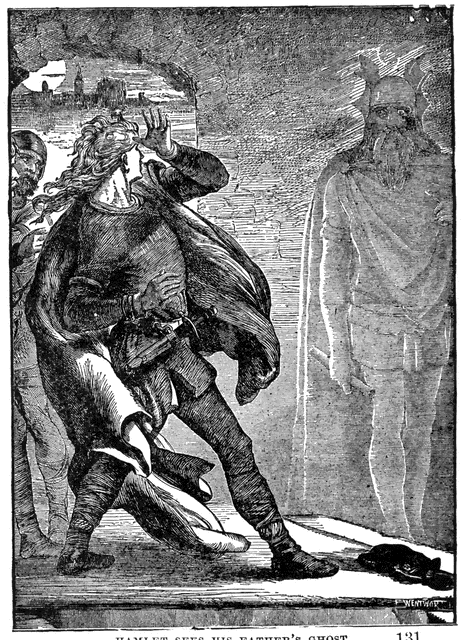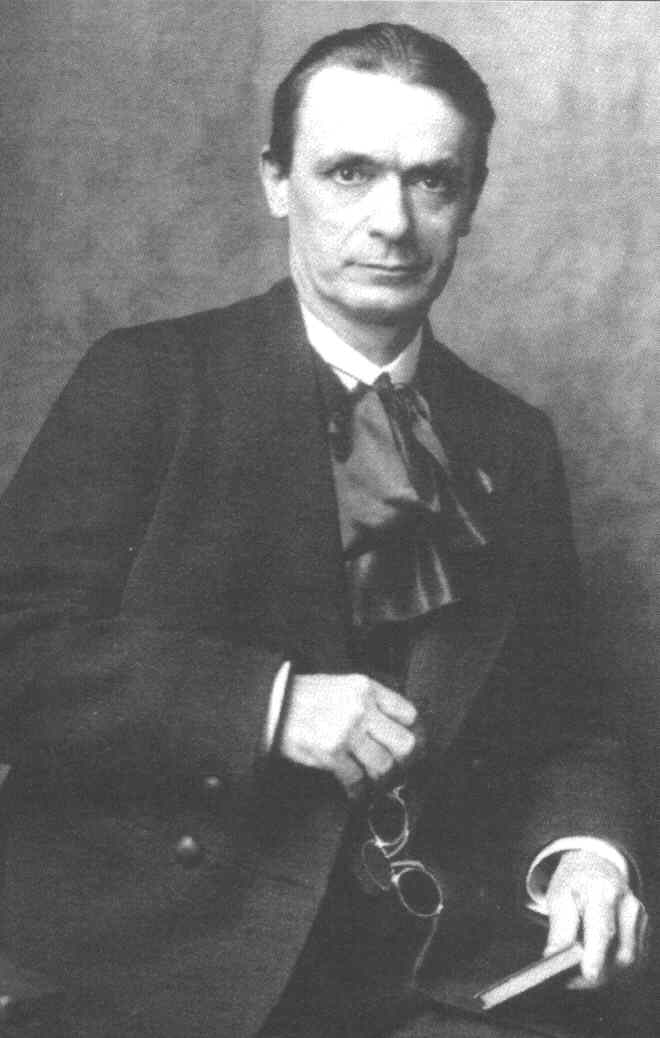Divine Encounters


"But I haven't lost the demons' craft and cunning: I've inherited
from them some useful things, but they won't be used for their benefit!"
--Robert de Boron, Merlin


Wintermute and the nest. Phobic vision of the hatching wasps, time-lapse machine gun of biology. But weren't the zaibatsus more like that, or the Yakuza, hives with cybernetic memories, vast single organisms, their DNA coded in silicon? If Straylight was an expression of the corporate identity of Tessier-Ashpool, then T-A was crazy as the old man had been. The same ragged tangle of fears, the same strange sense of aimlessness. "If they'd turned into what they wanted to..." he remembered Molly saying. But Wintermute had told her they hadn't.
 "The water imbibed by the Atlantean acted differently upon the life-force animating his body from what it would in the man of to-day ; and in consequence of this, the Atlantean was able--of his own volition--to use his physical forces in other ways than would be possible now."
"The water imbibed by the Atlantean acted differently upon the life-force animating his body from what it would in the man of to-day ; and in consequence of this, the Atlantean was able--of his own volition--to use his physical forces in other ways than would be possible now."Man lives, not directly or nakedly like the animals, but within a mythological universe, a body of assumptions and beliefs developed from existential concerns. Most of this is held unconsciously, which means that our imaginations many recognize elements of it, when presented in art or literature, without consciously understanding what it is that we recognize. (Frye xviii)

The Fourth Bear
A Nursery Crime
'...However many photos you see of the Gingerbreadman, nothing can ever prepare you for seeing him in the flesh. He was a dark brown colour the shade of mahogany and at least six foot eight inches tall with heavy limbs and a large head. His jacket was open revealing several large pink icing buttons that ran down his chest. He had large glace cherries for eyes the size of tennis balls’and a huge dollop of red icing for a nose. His mouth was two slivers of licorice, the corners of which rose into a smile as soon as he saw them. 'Alan!' said the Gingerbreadman with a deep yet friendly tone, 'What a pleasant surprise! And most timely, too. See here, I have bred a new rose which, in honour of your work to cure me of my criminal tendencies I take great pleasure in naming after you. Behold, Mandible's Triumph! ...'
The Gingerbreadman: Psychopath, sadist, genius, convicted murderer and biscuit is loose in the streets of Reading. It isn't Jack Spratt's case. He and Mary Mary have been reassigned due to falling levels of nursery crime, and The NCD is once more in jeopardy. That is, until a chance encounter during the Armitage Shanks literary awards at the oddly familiar Deja-Vu Club lead Jack and Mary on the hunt for missing journalist Henrietta 'Goldilocks' Hatchett, star reporter for The Daily Mole. She had been about to break a story involving unexplained explosions in Herefordshire, Pasadena and the Nullabor Plain; The last witnesses to see her alive were The Three Bears, comfortably living out a life of rural solitude in Andersen's wood. But all is not what it seems. How could the bear's porridge be at such disparate temperatures when they were poured at the same time? Was Goldy's death in the nearby 1st World War themepark of Sommeworld a freak accident? And is it merely chance that the Gingerbreadman pops up at awkward moments? But there's more. What does a missing scientist with a terrifying discovery in subatomic physics, a secret weapon of devastating power, a reclusive industrialist known only as the Quangle Wangle and Colonel Danvers of the National Security all have in common?
Published on the 10th July in the UK and the 24th July 2006 in the USA.
| You Are Scooter |
 Brainy and knowledgable, you are the perfect sidekick. You're always willing to lend a helping hand. In any big event or party, you're the one who keeps things going. "15 seconds to showtime!" |
 As part of the research for my upcoming Anthropology of Religion assignment - reviewing, analysing and criticising the article of our choice from our textbook - I have been reading a book by Gerald Alper called The Paranoia of Everyday Life: Escaping the Enemy Within. This is to complement the bizarre, nevertheless interesting article I'll be examining by a fellow anthropological psycho-analytic, Ronald C. Johnson called "Parallels between Recollections of Repressed Childhood Sex Abuse, Kidnappings by Space Aliens, and the 1692 Salem Witch Trials." As odd a subject as it seems for study I've becoming increasingly interested in the narrative structure of paranoia lately, partly because of a revelation about the stories of Lovecraft, and my own quirky psychological realization--no, I'm not saying I'm crazy, but merely becoming fascinated with psychology and modern literature.
As part of the research for my upcoming Anthropology of Religion assignment - reviewing, analysing and criticising the article of our choice from our textbook - I have been reading a book by Gerald Alper called The Paranoia of Everyday Life: Escaping the Enemy Within. This is to complement the bizarre, nevertheless interesting article I'll be examining by a fellow anthropological psycho-analytic, Ronald C. Johnson called "Parallels between Recollections of Repressed Childhood Sex Abuse, Kidnappings by Space Aliens, and the 1692 Salem Witch Trials." As odd a subject as it seems for study I've becoming increasingly interested in the narrative structure of paranoia lately, partly because of a revelation about the stories of Lovecraft, and my own quirky psychological realization--no, I'm not saying I'm crazy, but merely becoming fascinated with psychology and modern literature.  Incidentally, I ought to be sleeping but instead I'm sitting here contemplating a mish-mash of things from various books I read recently, and, unfortunately, keeping awake late enough into the early morning that I won't attend my morning anthropology class as I had insisted. The sad part is, as I realized very early, generally, there will be no loss if I miss class because we're not marked for attendance but rather our ability to analyse and criticise, and write a convincing essay, which I can do with the text-books and word processor here at home. If you will, call this an apology for my recent, flippant choices to skip, or, rather, to use a better phrase, to do what is in the interest of my own physical and mental health. This sounds utterly selfish, and demeaning to my teachers who are obviously intelligent, well-read individuals themselves, but truly I have no intent this year, unlike previous years, personally, to drive myself to the brink of exhaustion by pandering to and realizing someone else's foreign, inimitable dream. Nor have I the desire to be dragged naively, repeatedly through the delirious and perilous experience of hazardous health, narcosis and ill relationships this year as I learned from past experience by counting - whereas depending on someone at least suggests a bearable co-operative symbiosis or quest - on the shadows and strangers of the world to be benign. This is the year I won't deny what I've work so hard to achieve for my own health and knowledge by reading widely and voraciously, my calling for these erstwhile years, since I left the belly of the high-school whale on my mission to the proverbial Ninevah, university.
Incidentally, I ought to be sleeping but instead I'm sitting here contemplating a mish-mash of things from various books I read recently, and, unfortunately, keeping awake late enough into the early morning that I won't attend my morning anthropology class as I had insisted. The sad part is, as I realized very early, generally, there will be no loss if I miss class because we're not marked for attendance but rather our ability to analyse and criticise, and write a convincing essay, which I can do with the text-books and word processor here at home. If you will, call this an apology for my recent, flippant choices to skip, or, rather, to use a better phrase, to do what is in the interest of my own physical and mental health. This sounds utterly selfish, and demeaning to my teachers who are obviously intelligent, well-read individuals themselves, but truly I have no intent this year, unlike previous years, personally, to drive myself to the brink of exhaustion by pandering to and realizing someone else's foreign, inimitable dream. Nor have I the desire to be dragged naively, repeatedly through the delirious and perilous experience of hazardous health, narcosis and ill relationships this year as I learned from past experience by counting - whereas depending on someone at least suggests a bearable co-operative symbiosis or quest - on the shadows and strangers of the world to be benign. This is the year I won't deny what I've work so hard to achieve for my own health and knowledge by reading widely and voraciously, my calling for these erstwhile years, since I left the belly of the high-school whale on my mission to the proverbial Ninevah, university.